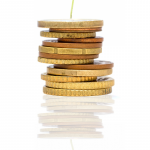At TechCabal’s Future of Commerce event on September 23, a panel was set up to discuss how mobile money has changed payments and business in Africa. There, TechCabal staff writer and panel host Damilare Dosunmu asked Fawzia Ali-Kimanthi, Safaricom’s acting chief consumer business officer, what would happen to the East African mobile money market if Wave, which has shaken up the mobile money market in francophone Africa with its cheap services, started competing with Safaricom’s M-PESA, which can be very expensive.
Ali-Kimanthi laughed. The problem was in the question. M-PESA is the dominant player in the mobile money market in Kenya. It is responsible for 98% of all mobile money transactions in a population of over 53 million that is moving toward a cashless society. But what will happen if they compete with a non-regional rival offering a more affordable alternative?
Ali-Kimanthi responded to the question by promising Kenyans that M-PESA is working to reduce the cost of mobile money credit services. In response to a possible Wave entry, she stated that M-PESA is willing to face large competitors because it will help them innovate and improve their products.
The growth of mobile money in Africa has reached new heights thanks to companies like M-PESA, Wave, and MTN, which are relatively new to the market.
Nearly 70% of the $1 trillion that has been moved around the world through mobile money so far has been done in sub-Saharan Africa. The region processed $697.7 billion in payments, a 40% increase from the previous year. This is much more than East Asia ($156.3 billion) and South Asia ($156.3 billion), the regions with the most mobile money users.
Although it is encouraging to see this growth, the benefits of expanding mobile money in Africa go well beyond the ability to make payments. In Africa, mobile money is doing what traditional banks haven’t been able to do in the decades they’ve been around: getting people to embrace the digital life and sign up for digital financial services, even if they don’t have much money or education.
This lifestyle change still affects the continent in many ways, one of which is how well small businesses work. A pro-digital business environment has been created in the local African setting due to the widespread adoption of digitised mobile payment systems, making it possible for smaller businesses to conduct transactions with their customers more quickly.
A report by GSMA that looked at the global use of mobile money said, “Cash-in, cash-out, and person-to-person (P2P) payments still make up the bulk of value, but thanks to mobile money, more people in LMICs [low and middle-income countries] are living increasingly digital lives.”
Is it possible that Nigeria is the starting point for a mobile money revolution across Africa?
According to the previously mentioned GSMA report, mobile money penetration will increase in countries where mobile money operations are still in their infancy, such as Nigeria (where telcos are just starting to venture into mobile money services) and Ethiopia (where M-Pesa recently got licensed to operate).
Nika Naghavi, the executive director of mobile network operators at MFS Africa and was also on the FOC panel, agreed with GSMA that mobile money operations could increase in Nigeria. She says that the next big thing in mobile money on the African continent is for telcos like MTN and Airtel to enter the Nigerian mobile money market.
She claims that “when mobile money is used in Nigeria through Airtel and MTN, it would revolutionise the landscape and bring new services and partnerships’ ‘ to the country.
While Nigeria’s payment industry has thrived, few leading players are banking the unbanked long-term, even though Nigeria has the continent’s largest unbanked population. “This is where mobile money’s convenience comes into play,” she continued.
Naghavi’s argument focused on that 60% of Nigerians who don’t have bank accounts already use mobile phones and are connected to big telcos. Also, MTN and Airtel have been in the West African country for a long enough time to know much about how their users act.
So, their networks, data, experience, and broad reach across the country make them good people to lead a mobile money revolution in the country and on the continent.
Ali-Kimanthi, who is employed by M-PESA, a mobile money player that is driven by telcos, expressed optimism over the possibility of telcos promoting mobile money in Nigeria.” Based on what we saw in Kenya, I predict a surge in mobile money operations in Nigeria, which will include power industries,” she said.
Nigeria’s mobile money market is getting a lot of attention, but we should remember why products like M-PESA took off nationally in Kenya. Along with the push from telcos, one of the most important reasons is that mobile money operations in the region have been updated to include credit facilities. Nigeria isn’t like that right now, but there’s no reason it couldn’t be in the future.
M-model PESA shows that mobile money operations can include financial products like loans and insurance. This is what it means to “bank the unbanked”—to build an ecosystem that gives people who don’t have access to banks a full suite of financial services, not just a digital way to send money. This could be the key to the mobile money revolution in Africa that we want to see.
Naghavi said that if telcos want to change the playing field, they will have to start a paradigm shift in how mobile money is run by doing better than their competitors and giving Nigerians a taste of financial inclusion.
Even though Africa is the leader in mobile money, there are still wars to win.
More than 800 million Africans still aren’t connected to the internet is a problem for mobile money companies all over the continent. It is now abundantly evident that innovation in the sector must include those in Africa who do not have access to smartphones. USSD services are an excellent choice because they can get around the internet accessibility issue that plagues people living in rural areas of Africa.
Another thing that operators need to pay attention to is how digital payments can replace cash as the dominant form of charge on the streets of Africa.
Customers and mobile money service providers throughout Africa are being forced to shoulder the financial burden of complying with expensive rent-seeking government policies across Africa.
In Ghana, the tax on digital transactions was called “e-levy,” which was 1.75 per cent. For money transfers and withdrawals from mobile money services in Cameroon, the government set their fee at 0.2%. Both costs have been criticised by people who use mobile money, but they are still in place, which hurts mobile money services.
Esigie Aguele, co-founder and CEO of Qore ID, a company that verifies people’s identities, spoke on a panel at TechCabal’s FOC. She discussed the need for standard verification processes and strategic partnerships in Africa’s race to change how mobile money is used.
Mobile money will help more people access to cash and open the market for more African businesses. However, operators must ensure that their customers are who they say they are. “This is where our company fits in,” he said.
Strategic alliances are also critical for the future of mobile money services on the African continent. “Teleco, Banks can find ways to work together to make new products for African customers,” Aguele said.
Africa is becoming more open to business. Even though products like BNPL and drone logistics may seem like the next big thing, the truth is that mobile money penetration, adoption, and innovation are the keys to a massive change in how business is done on the continent.
When mobile money reaches some innovation peaks, a rural farmer in Africa will be able to use her phone to access mobile payments, digital transfers, insurance, credit, and even investment opportunities from the comfort of her bed or barn, even if she doesn’t have access to the internet.
This is possible in Africa, and the fact that we are the leaders in the world regarding mobile money transactions shows that we can offer the rest of the world what happens when mobile money services are met with real disruption.



